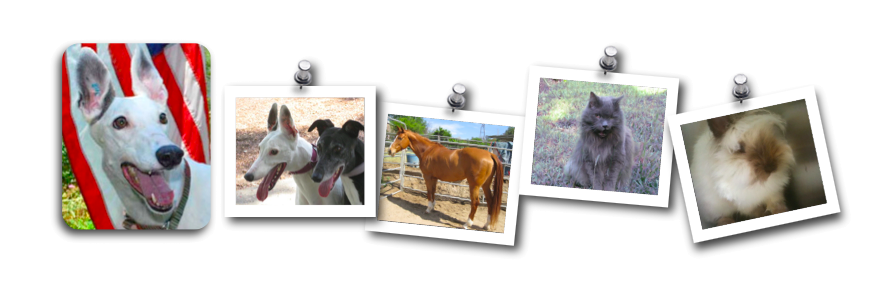The FDA Model Food Code (1999) recommends that food be thawed in the refrigerator or in flowing water. Thawing RF food in the refrigerator can be inefficient and time consuming, in addition to occupying refrigeration space required for other food items. Most of all, this lengthy procedure can lead to the risk of cross-contamination when the drip from the raw meat comes in contact with ready-to-eat food stored in the refrigerator. In the alternative, consumers usually put the RF pet food out at room temperature, creating the perfect circumstance for pathogen proliferation.
By sharing our concerns and successes, we all benefit.
Animals live to serve us one way or another, so knowing how to take care of them is critical for our mutual well being.
Wednesday, June 23, 2010
The High Risk In Thawing
– Thawing is another critical phase in the freezing process as it involves a change from crystal ice to melted water, which upon reabsorption results in microbial reactivation. Pathogenic bacteria inherently contaminate raw meat, fish, and poultry and will begin to multiply again when the temperature reaches just 29.3º F – which is below freezing! Thus a product that may appear subjectively frozen could be a veritable incubator of pathogens. When consumers attempt to thaw RF pe foods, dangers dramatically increase. The surface temperature rises long before the interior is sufficiently thawed to serve. For example, it takes about 15 hours for the middle of a 22-pound turkey to get to 32º F. In the interim the surface temperature rises to 53º F. In this amount of time there would be about 4 multiplications of spoilage bacteria as well as non-detectable multiplications of pathogens.
Subscribe to:
Post Comments (Atom)
Blog Archive
-
▼
2010
(228)
-
▼
June
(56)
-
▼
Jun 23
(16)
- Dangers of raw pet foods: A Better Alternative
- Dangers of raw pet foods: Environmental
- Dangers of raw pet foods: Packaging
- Dangers of raw pet foods: Parasites Are Ignored
- Dangers of raw pet foods: Quality
- Dangers of raw pet foods: Temperature And Time Are...
- Mycotoxins Go Undetected
- Dangers of raw pet foods: Microwave Thawing Dangers
- Dangers of raw pet foods: Supply Chain Time Dangers
- Dangers of raw pet foods: Mold and Mycotoxins in R...
- Economics
- Undetected Freeze-Thaw Cycles
- The High Risk In Thawing
- Frozen Pet Foods Can Lead To Acidemia
- Frozen Pet Products Are Not Inert To Degradation
- Dangers of raw pet foods: Freezer Burn Indicates A...
-
▼
Jun 23
(16)
-
▼
June
(56)

No comments:
Post a Comment